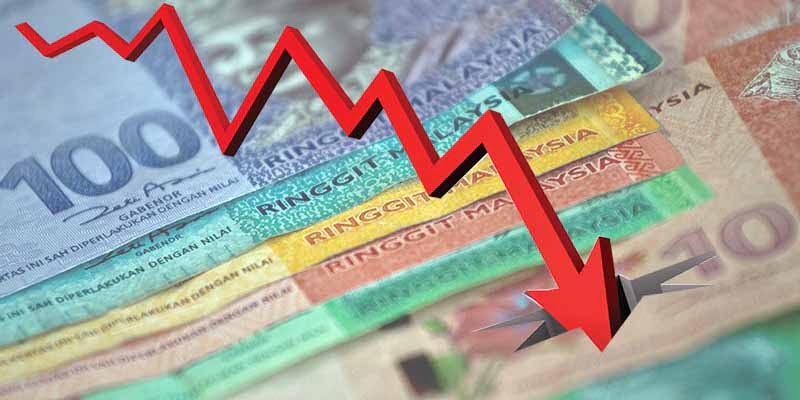The ongoing slide of Malaysia’s currency is causing increasing concern and providing political ammunition for government critics and opposition leaders.
Malaysia’s central bank remains vigilant to address the ringgit’s volatility, asserted a senior finance official, amid growing concern among investors over the currency’s stability.
Amir Hamzah Azizan, the nation’s second finance minister, underscored Bank Negara Malaysia’s readiness to utilise its reserves to mitigate excessive weakness in the ringgit. “The government takes the performance of the ringgit seriously and is committed to defending and strengthening its position,” he affirmed during a parliamentary session.
Recent weeks have seen policymakers intensify efforts to stem the ringgit’s decline, with the currency, mired in a “pattern of weakness,” having recently hit its lowest level since the Asian financial crisis of 1998. This depreciation threatens to elevate prices of goods and services, presenting policymakers with the challenge of charting an appropriate monetary response.

As of the afternoon of March 1 in Kuala Lumpur, the ringgit experienced a modest uptick to 4.7605 per dollar. However, its year-to-date decline of 3.5% places it among the poorest performers in emerging Asian economies.
Kheng Siang Ng of State Street Global Advisors anticipates Bank Negara Malaysia intervening when the ringgit approaches 4.8 per dollar, a sentiment echoed by analysts from leading banks. “The increased frequency of officials discussing the ringgit suggests heightened scrutiny,” observed Christopher Wong of OCBC in Singapore, noting that drastic movements may prompt intervention.
Against the backdrop of a slowing economy, compounded by sluggish growth in China, Malaysia faces the task of balancing growth support with inflation concerns. Afzanizam Abdul Rashid, chief economist at Bank Muamalat Malaysia Bhd., views this as a challenge for policymakers. The increase in Malaysia’s sales and service tax, jumping from 6% to 8%, presents even more challenges for an economy striving to recover from the global Covid-19 pandemic.
Bank Negara Malaysia has maintained its key rate at 3%, diverging from the Federal Reserve’s benchmark and incentivising foreign investors to seek higher returns elsewhere. This, coupled with the US dollar’s resilience, exacerbates pressure on the ringgit.

The currency’s decline has also become a political focal point, with the opposition criticising the government’s handling of the matter. Prime Minister Anwar Ibrahim, who is also the country’s Finance Minister, is certainly aware of the political implications. “It is concerning and we are looking at it,” Anwar told reporters after speaking at a recent financial event. He acknowledged downsides from the currency’s persistent weakness, but added, “Our exports are doing well” and “the ringgit is under control.”
Amid these dynamics, analysts foresee the ringgit rebounding to 4.5 by year-end, reflecting an optimistic economic outlook. While some analysts may forecast a specific value for the ringgit by year-end, accurately and consistently predicting currency movements, particularly many months in advance, remains a formidable challenge – one most observers note is close to impossible to achieve, especially in a world fraught with uncertainties.
While Bank Negara Governor Abdul Rasheed Ghaffour emphasised the ringgit’s potential for appreciation, he refrained from affirming market intervention. “The central bank’s primary objective is to prevent overshoot,” asserted Ng of State Street Global Advisors, suggesting that interventions would be calibrated to maintain stability.
With Malaysia holding approximately $115 billion in foreign reserves as of mid-February, analysts caution against aggressive intervention, citing constraints on reserves adequacy relative to regional peers.
Information from Bloomberg, Nikkei Asia, and The Edge contributed to this article.
"ExpatGo welcomes and encourages comments, input, and divergent opinions. However, we kindly request that you use suitable language in your comments, and refrain from any sort of personal attack, hate speech, or disparaging rhetoric. Comments not in line with this are subject to removal from the site. "




















